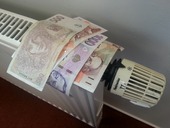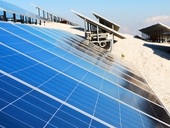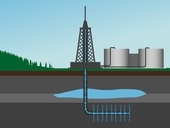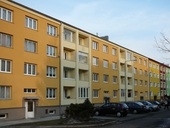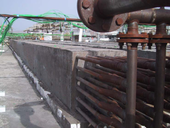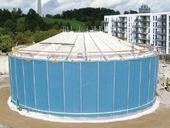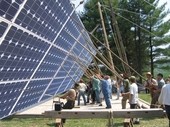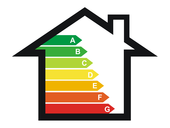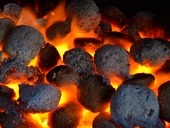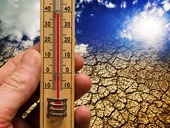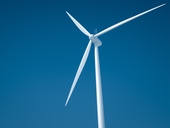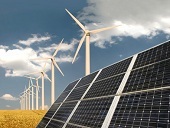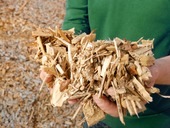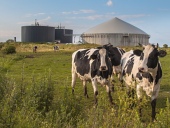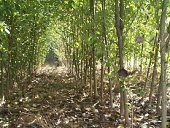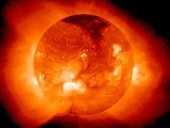The article describes important new information about resolving the central heating. Heating is different from circulating water supply by solving transmission capability of pipe networks and by solving the power control. The article deals with the first of real heating characteristics – transmission capability of isolated and non-isolated pipe networks.
Archiv článků od 17.2.2014 do 1.9.2014
The history of photovoltaic begins with the discovery of the photoelectric effect in 1839 and later the photovoltaic effect in 1876. Practical application of photovoltaics came a century later, the earliest for power supply of satellites in 1958.
Turbulent development of the field followed, accompanied by the rapid decline in prices and increase of energy efficiency.
While the Czech Republic has imposed "moratorium" on offshore oil or natural gas from shale, the world is slowly unconventional method of production starts. Text describes and explains the process of "shale revolution" in the USA and compares the approaches to the same method of mining in several world regions and states. The author intends text and fulfillment of the conditions for the export options "shale commodities" globally and the implications of the massive expansion of exports of unconventional gas and oil.
The paper discusses current serious problem of district heating systems (DHS) – disconnecting of individual users and consequent threat of a possible entire heating system collapse in the given locality. Realistic alternatives to the DHS could be heat pumps as individual heat sources. Reasons, advantages and disadvantages of heat pumps in comparison to the DHS are presented in the paper.
Year 2013 was important in terms of sales of heat sources in the Czech Republic, because the long-awaited change came after years in the sign of declining demand. Sales of manufacturers grew significantly, as it documents the evaluation of the data obtained from the Association of heating technology (APTT) and the Ministry of Industry and Trade (MPO).
Surplus energy can be stored in the form of sensible heat. The present concept utilizes rock material and a thermally conductive geopolymer to construct the thermal energy storage with working temperatures up to 400 ° C. The paper describes a model evaluation of the performance impact of selected storage materials.
This paper is focused on hot water tanks for long-term heat storage. Describes the design of the tanks and and their properties. The evaluation of tanks is based on the results of real systems. Tanks are mainly used for solar systems with long-term heat storage. The use of solar systems with long-term heat storage for building opens new possibilities for further savings of energy from non-renewable sources.
Although more and more people in the Czech republic understand the principle of net metering, only a minority understands it's purpose as well. Due to Czech negative experience with uncorrected feed-in tariff is any other renewable energy support viewed with suspicion and scepticism. The article explains the purpose of net metering as non-financial mechanism of renewable energy support - what is it good for, what we can expect from it, who will benefit from it and who will carry the costs.
This article assesses the subject of modern and efficient ways of using energy from wood that has been widely discussed within the scientific lectures on fair TECHAGRO and BIOMASS 2014. The author outlines the development of the cross-section of the use of wood fuels from forest management in the context of the application of forest logging residues, or sawdust from wood processing industry in the energy sector in the Czech Republic.
Reducing the energy performance of buildings is very important. Equally important, however, is also the correct evaluation of energy savings. In practice, we meet with different approaches to the evaluation of energy efficiency, while some of them are far away from objectivity. This group also includes so called Energy League.
Risks of Utilization of Remainders Arising from Coal Burning for Heat and Electric Energy Production
Power industry is one of the greatest producers of waste. The character of waste products from the power industry is quite different from waste arising from the other industrial sectors as concerns its composition, methods of removal and possibilities of use. There has been revealed within the solution of the project “The Resort Research Program in the Force of the Ministry of Environment” ref. no. SP2f3/118/08, bearing the name “the research of real properties of waste considered as an acceptable source of non-standard raw-materials (particularly the secondary by-products from the energy generation) in sense of actual legal requirements for the protection of health, environment and the evaluation of the acquired information for the determination of safety processes and requirements for their use”, that products used for the landscaping, in certain events do not fulfill requirements stipulated for the utilization of waste on the ground surface. It means that construction products made from remainders after the coal burning, being sold as safe, can contaminate the environment more than waste used for the same purpose.
The lecture and the following panel discussion took place following the release of third part of IPCC fifth assessment report (AR5) which was published in Berlin a day before. The event was organized by the Commission for the Environment of the Academy of Sciences of the Czech Republic, Climate Coalition, and the United Nations Information Centre in Prague in cooperation with the Heinrich-Böll-Stiftung Prague.
Capacity factor of wind power plants in the Czech Republic according to different sources varies in a huge range from pessimistic “4–14 %” to the optimistic “up to 36 %”. The problem arises when via press releases of the ČTK (Czech Press Agency) erroneous data are distributed, which then influences the public debate.
In fact, the average annual capacity factor of the whole set of wind power plants in the Czech Republic is around 20 % or slightly above this level in the last five years. In the longer term the capacity factor increases, because newer wind farms have annual capacity factor about 25 %.
Pessimistic value of the capacity factor below 15 %, are in a better case based on outdated information, or on data from inconvenient installation locations or turbines with technical problems. In the worst case this involves a focused misinformation. If they are published by not direct opponents of wind energy, suggests such values, if they are considered to be related to the total production of electricity from wind in the Czech Republic, the ignorance of the issue.
Optimistic values around 25 % may be related to newer wind turbines in the Czech Republic. Values well above 25 % could be a data of individual wind turbines, results of a shorter period, or the expected results of future installations of which the rated power of the generator is less than would correspond to the size of the rotor.
Concept Data Support Department of the Ministry of Industry and Trade has prepared this statistical report as a comprehensive national statistics on renewable energy sources. The final part of the report provides statistical data of the categories Energy use of waste and alternative fuels, Hydropower, Wind Power, Photovoltaics, Solar thermal systems, Heat pumps and Geothermal energy.
Concept Data Support Department of the Ministry of Industry and Trade has prepared this statistical report as a comprehensive national statistics on renewable energy sources. First part of the report focuses on the position of RES in the energy balance of the Czech Republic and describes in detail the development of the category of biogas and liquid biofuels.
According to an official decision the fusion energy is not a renewable energy source. This ad hoc decision ignores the basic physical reality and the condition to some extent reminds the inquisition, because some people impose their opinion as superior to the logic and nature itself. This article points out a possible cause of negative attitudes towards nuclear fusion, and to all nuclear sources without knowledge of the facts.
zpět na aktuální články
